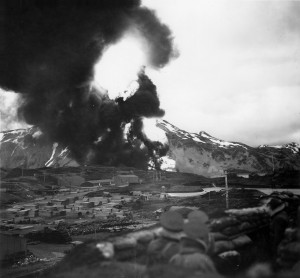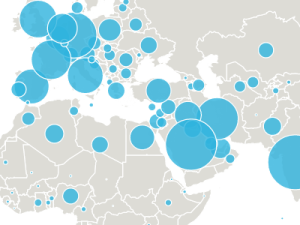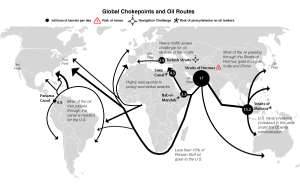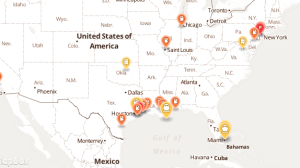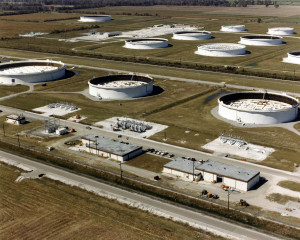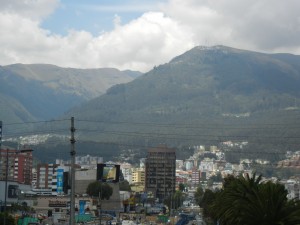
An increase in U.S. Navy ship visits to Subic Bay, Philippines, and joint military exercises hosted nearby signal a major shift in resources as the U.S. winds down wars in Iraq and Afghanistan and aims to secure its national security interests in the Pacific. (Photo by David Kashi)
Is the U.S. energy secure?
At the beginning of this special 11-week reporting project by the Medill National Security Journalism Initiative, our team of nine student journalists set out to answer this question. What we found was a complex answer based on our extensive reporting that included trekking through the colorful narrow stone streets of Quito, Ecuador; investigating the financial and global power of oil giant Saudi Aramco; embedding in anti-mining military exercises in the Strait of Hormuz; interviewing top government officials in the corridors of Washington; and much, much more.Read, listen and watch
Start with the first story below to follow an interactive narrative exploring the state of energy security in America:
Fact or fiction?
The statements below, frequently assumed to be true, are more complicated than they seem. See if you can tell whether they're fact or fiction:
Not necessarily. In fact, the U.S. is unlikely to become truly energy, or oil, independent. Find out why »
False. Every president since Harry Truman has asserted his belief that the U.S. should become energy independent. But in reality, there is no such thing as true energy independence. Find out why »
True to some degree, but it’s something that will take time. Find out why »
False. In 2011, Canada exported approximately 2.4 million barrels of oil per day to the United States, which accounted for 29 percent of net U.S. imports, the largest amount from one country. Find out why »
True. The sudden loss of regional oil networks would paralyze the global economy. Find out why »
Not necessarily. Some experts warn that U.S. energy security is threatened by the growing appetite of China and other countries for resources to fuel their expansions. Find out why »
Not necessarily. While the cost of crude oil is a major component in the price of gasoline, prices are also determined by supply and demand around the world. Find out why »
False.In recent years, supply disruptions from hurricanes, political instability in oil-rich countries like Libya and threats posed by nations such as Iran have threatened the immediate global oil supply. Find out why »
False. At the current pace of technological development, even if the U.S. maximized its output from biofuel, solar, wind, and other alternative energy sources, it would still only replace a fraction of all the energy provided by traditional sources such as oil and coal. Find out why »
